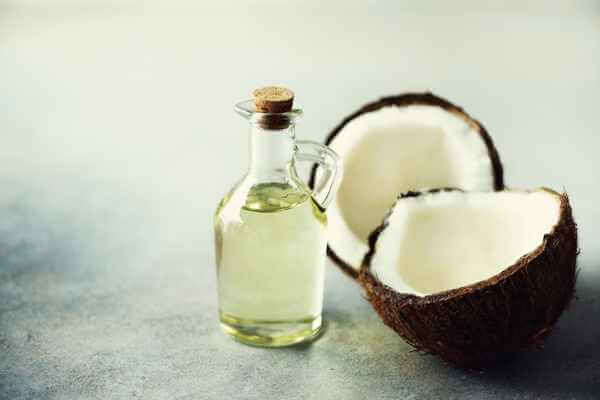Olive oil is a popular, healthy oil that is used for cooking, baking, and dipping. In the places like Europe and Spain, olive oil is the only oil that you can find easily from grocery stores.
Heart-conscious people prefer to use olive oil as it is low in saturated fat (which is not considered good for your health) while it contains a high concentration of monounsaturated and polyunsaturated fat, which makes it appealing to heart advocates.
No doubt olive oil is widely used all around the world as it goes well for cooking, frying, dipping bread, and even baking. With its plenty of health benefits and full of flavor profile, it’s no wonder it’s a popular choice. But what if you do not find this queen of all oils? What if you run out of it? Is there any oil that can be used in the place of olive oil?
Good news…. YESS!! There are plenty of options in your supermarket that you can choose from. Some of them are healthier than others. Even more, experts suggest trying different cooking oils in order to consume the best from all of them. So if you have been using extra virgin oil for a long time, it a time to try something different and tasty with the same health benefits as olive oil.
Below is the list of best olive oil alternatives that are commonly used worldwide, so start with a tasty one!
Top 10 Of The Best olive oil alternatives
Your supermarket has plenty of options that you can choose from if your run out of olive oil or simply don’t like its taste. You may probably find some of them in your pantry. Below are some of the amazing olive oil alternatives that may surprise you, but they absolutely work for the right context, so keep reading to discover the best olive oil alternatives… and keep reading till the end as you will find a bonus TIP for you!!
| One tablespoon of olive oil contains 124 calories, which comes from fat. One tablespoon of Olive oil can provide you with:
For all the olive oil alternatives that we are going to discuss in this article, the substitution ratio is simply 1:1. If you are cooking any recipe in which you need 2 tablespoons of olive oil, you have to use 2 tablespoons of any alternative. |
#1 Grape seed Oil
Grape seed oil is a great olive oil alternative as it can provide you with the same nutrient value and smoke point. One tablespoon of grape seed oil contains 2 grams of monounsaturated fat and 9.5 grams of polyunsaturated fat as well as it provides you with a healthy dose of vitamin E – an antioxidant that helps prevent aging and chronic disease. The grape seed oil has a robust flavor and can be used for sautéing, dipping, drizzling, and salad dressings.
Uses:
The taste of grape seed oil is neutral, which means it can be used easily in place of olive oil when you are cooking something flavorful. Moreover, if you don’t like the taste of olive oil but still want to enjoy its benefits, then grape seed oil is the best alternative!
#2 Canola Oil

Canola oil is another great olive oil alternative that can work well in place of olive oil. It can provide you with one of the highest levels of monounsaturated fat, 4 grams of polyunsaturated fats, as well as a good source of providing vitamin E.
Because of its healthy fat content, it has been shown to reduce cardiovascular risk factors; moreover, it reduces the cholesterol level as compared to other oils as well as reduces triglycerides compared to olive oil.
Uses:
Canola oil is also a versatile ingredient, just like olive oil that can be used for frying, grilling, sautéing, and even for salad dressings and sauces.
#3 Sunflower Oil
Just like canola oil, Sunflower oil can also be a healthy olive oil alternative. It has the same smoke point as olive oil. Thanks to its healthy fatty acid profile, which makes it ideal for lowering cholesterol levels. One bonus point is that one tablespoon of olive oil can provide more than a third of recommended vitamin E intake for a day.
Uses:
Cold-pressed sunflower oil is the best to use for dressings or for any other cold application. However, refined sunflower oil can be used in heat applications because it has a high smoke point. The taste of refined sunflower is more neutral than cold-pressed sunflower oil.
#4 Coconut Oil

Coconut oil can also be used in place of olive oil as it works well for sautéing and roasting, but avoid adding it for dressings or dip as it solids at room temperature. Coconut oil can provide you with lauric acid, which helps to improve the ratio of good HDL to bad LDL cholesterol in the blood.
Uses:
You can use coconut oil in high-heat cooking. Moreover, it has a slight flavor, that’s why it can also pair well with baked recipes like cakes, cookies, etc.
#5 Butter
You can use melted butter in place of olive oil for sautéing and roasting. One tablespoon serving of butter contains 102 calories, most of which come from saturated fat. Experts believe that many people reduce the intake of saturated fat (which also reduces lauric acid intake) in order to take mono and polyunsaturated fats. So adding butter to your menu can be a good option.
Uses:
Butter is a convenient and delicious alternative to olive oil that has a very satisfying taste. It can add a rich flavor to your5 dish and can make baked goods more flaky and moist.
#6 Walnut Oil

Walnut oil – is another healthy alternative to olive oil. It is rich in poly and monounsaturated fatty acids, which makes it the most heart-healthy oil. Moreover, it also contains alpha-linolenic acid (ALA)[1]https://en.wikipedia.org/wiki/Alpha-Linolenic_acid, which protects cells from inflammation.
Uses:
Walnut oil has a low smoke point, which is why it’s not ideal for cooking but works well in salads and cold dishes. Surprisingly, walnut oil is also used to condition wooden kitchen tools like wooden spoons and cutting boards.
#7 Mashed banana
Don’t be surprised after knowing that you can also use mashed banana as a healthy olive oil alternative. They are rich in potassium and fat-free, with less than 1 gram of fats in one cup of mashed banana.
Ripe bananas can work well as an olive oil alternative; just be sure that it complements the other flavors of your baked goods.
Uses:
You may find limited use of bananas as a substitution for olive oil in your cooking applications, but they prove an excellent replacement for oil in baking recipes.
#8 Peanut oil
Peanut oil is a great olive oil alternative that does not contain cholesterol and has a very mild flavor. One tablespoon of peanut oil contains 119 calories and 13.5 grams of fat. Its fat profile is mixed with 6.2 grams of monounsaturated fat, 4.3 grams of polyunsaturated fat, and 2.3 grams of saturated fat. It is also a healthy source of providing vitamin E and K.
Uses:
Peanut oil can be used for high-temperature cooking, such as frying and sautéing. Olive oil’s flavour is neutral and doesn’t absorb the flavors of the food it is cooking, which means that you can reuse it.
#9 Ghee
Ghee is simply butter that has been clarified – a process in which milk solids are removed. Ghee contains omega 3 and omega 6 fatty acids, which are beneficial in reducing the risk of chronic disease.
Uses:
Ghee has a high smoke point, which makes it ideal for high-temperature cooking like frying as well as roasting, grilling, and sautéing. Ghee is one of the good oils used for flavoring rice and pan-frying. One good thing about ghee is that it does not burn easily like butter as it has lower water content.
#10 Avocado Oil
Like olive oil, avocado oil contains a healthy concentration of unsaturated fatty acids. Moreover, one study has also proved that avocado oil helps to improve cholesterol and triglyceride levels and also has anti-inflammatory properties.
Uses:
Avocado oil has a very high smoke point, which makes it ideal for high-temperature cooking like roasting and grilling. Moreover, it is also a delicious option for salad dressing applications.
Bonus TIP
When you are baking anything for which olive oil is a mentioned ingredient, be sure to assess whether the flavor of olive oil is the basis for its inclusion as some recipes pair the flavor of olive oil with citrus or aromatics like rosemary because they balance each other’s taste well. So there are possibilities that might not get the desired result if you use any oil instead of olive oil.
References
| ↑1 | https://en.wikipedia.org/wiki/Alpha-Linolenic_acid |
|---|
